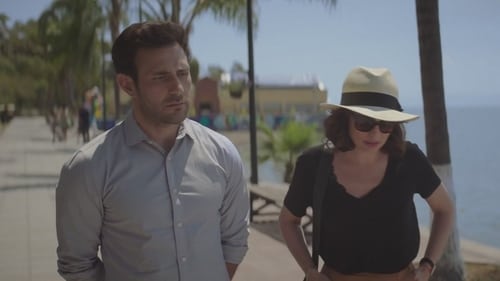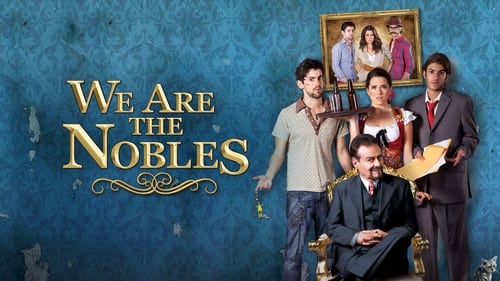
Editor
In order to advance her career in the dynamic world of publicity in Mexico City, Raquel tries to reunite with her high school friend Cecy who has become the queen of social media. But unlike followers, friendships do not come instantly.

Editor
Paula and Paulina, two young women who hate each other, magically swap bodies after a high school reunion.

Editor
A woman is determined to stop the wedding of her best friend, since she has been secretly in love with him.

Editor
A unique relationship between two women that transcends time and space.

Editor
A shy and feeble architect is victim of a violent and abusing surrounding. The pressure builds up until he is pushed to the limit of his own humanity.

Editor
Two families dispute a land with a land dealer.

Editor
Tells the "riches to rags" story of the Nobles, three upper-class twenty-somethings that appear to have no limits to their checkbooks, and no direction in their lives. Until one day, their father tries to teach them a lesson by staging a financial scandal that forces the whole family to escape to an old house in the poor side of town, and leads the "kids" to do what they haven't done before: get jobs.

Editor

Editor
This is a documentary about the Uruguayan boxer Alfredo Evangelista, who at height of his career even fought against Mohammad Ali. A considerable part of the film is a long interview with him in Carabanchel prison in Madrid. Alfredo, one of Uruguay's last sporting legends, tells his story for the camera. He talks about his life and his career in sport, and he reflects bitterly and lucidly about the mistakes he has made and his situation today.

Editor
A couple discovers a bumper car floor. When there some youngsters appear, the man gets caught into a personal battle with himself.

Editor
The Punta de Rieles prison was where most female political prisoners were incarcerated during the dictatorship in Uruguay. The way up to the building led through “the meadow” where there were animals grazing, and the prison itself was surrounded with flowers. The place seemed eminently liveable, almost comfortable, and at first sight there was no sign of the silent struggle going on behind those walls. This documentary is an attempt to reconstruct life at the prison through the testimony of some of the hundreds of women who were there and who resisted the military regime's attempts to grind them down and destroy them.

Editor
The biggest peaceful demonstration of resistance to an authoritarian regime in Latin America in the 1970s was the general strike whereby Uruguayan workers and students rejected the military coup of 27 June 1973. In this documentary we follow what happened from two perspectives: that of the people who took part in the mass mobilisation, and that of those who captured those events in images.

Editor
Lucia, an children's book author, tells the story of her husband's disappearance. One day on their way to Brazil he just disappears. She goes to the police, gets a ransom note, and makes friends with the old dude downstairs and the young dude upstairs as she tries to find him. Things take a bit of a twist as she realized the kidnapping may not be as simple as it seems on the surface.

Editor
In Montevideo, Sonja cares for her invalid mother, works in a garment factory, and has little going for her. Her neighbor Modesto, an older man who lives alone, types anonymous letters to her. Her mother is difficult -- demanding and miserable, afraid of death. Sonja meets Ernesto, a nurseryman, and finally there may be some possibilities in her life. Does freedom beckon?

Editor
Héctor Rodríguez (1918-1996) was one of the outstanding figures in the people's movement in Uruguay. He was a textile worker and also a member of parliament for the Communist Party, and he was expelled from their ranks in the 1950s. He was a journalist, a militant activist and a political prisoner, and a key force in trade union unity and left wing politics in Uruguay. His life was bound up with some of the most important events in the history of this country after 1930. As well as Héctor's own testimony we have the voices of textile workers, intellectuals, union members and politicians, in a rich mixture of archive film and photographs.

Editor
A crooked CEO is kidnapped and nobody cares enough to pay his ransom.

Editor
Armed based on photography, period films, archival materials and testimonies of survivors, family members and historians, the documentary accurately and exquisitely reconstructs the course of the “expropriating anarchists” in the Río de la Plata and specifically in Montevideo del First third of the 20th century.

Editor
The first documentary about the little-known world of transvestites in Montevideo. We are shown the most complicated facets of these people, their consciousness of themselves, and their perceptions of the world and of life. We learn about their everyday (and every night) experiences, and how they cope with the bigotry and old fashioned attitudes that are all around.

Producer
At ten o'clock on the night of 20 November 1993, in the Barrio Sur neighbourhood of Montevideo, Jaime Roos began the first of 42 concerts on a tour that lasted three months and included performances in all 19 departments of the country. In total some 300,000 saw him play. This documentary captures the essence of that unique tour and it is a crucial contribution to our understanding of Jaime Roos and his position in Uruguayan music towards the end of the 20th century.

Writer














